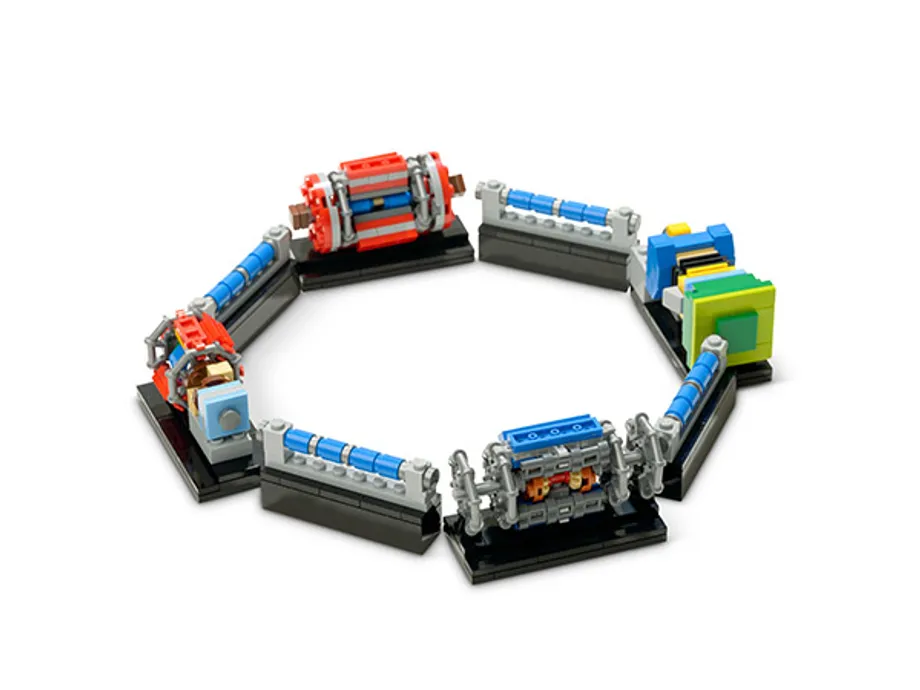Particle physics
Particle physics is the branch of physics that studies the nature of particles that constitute matter (particles with mass) and radiation (massless particles).
Although the word particle can refer to various types of very small objects, particle physics usually investigates the irreducibly smallest detectable particles and the irreducibly fundamental force fields necessary to explain them.
Current understanding is that these elementary particles are excitations of the quantum fields that also govern their interactions. The current dominant theory explaining these fundamental particles and fields, along with their dynamics is called the Standard Model.
Lego model of the Hadron Collider
This is a model made from Lego of the Large Hadron Collider (LHC). The LHC is the worlds largest and most powerful particle collider, the largest and most complex experimental facility ever built, and the largest single machine in the world.
It was built by the European Organization for Nuclear Research (CERN) between 1998 and 2008 in collaboration with over 10,000 scientists and engineers from over 100 countries, as well as hundreds of universities and laboratories.
It lies in a tunnel 27 kilometres in circumference, as deep as 175 metres beneath the Franco-Swiss border near Geneva, Switzerland.

